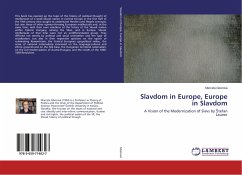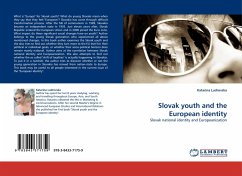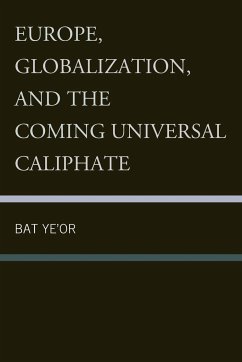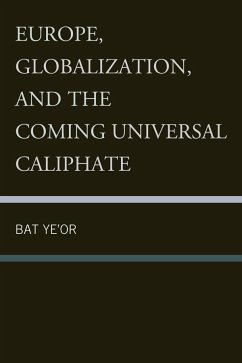
Slavdom in Europe, Europe in Slavdom
A Vision of the Modernization of Slavs by ¿tefan Launer
Versandkostenfrei!
Versandfertig in 6-10 Tagen
20,99 €
inkl. MwSt.

PAYBACK Punkte
10 °P sammeln!
This book has opened up the topic of the history of political thought of intellectuals of a small Slovak nation in Central Europe in the first half of the 19th century who sought to understand Herder's and Hegel's concepts, but also those of other opinion-forming European intellectuals and, at the same time, seek their own solutions of the future of the Slovak nation within historic Hungary, among the Slavs, and in Europe. Slovak intellectuals of that time were not an undifferentiated group. They differed not merely by political and social orientation and the type of socialization, but also in...
This book has opened up the topic of the history of political thought of intellectuals of a small Slovak nation in Central Europe in the first half of the 19th century who sought to understand Herder's and Hegel's concepts, but also those of other opinion-forming European intellectuals and, at the same time, seek their own solutions of the future of the Slovak nation within historic Hungary, among the Slavs, and in Europe. Slovak intellectuals of that time were not an undifferentiated group. They differed not merely by political and social orientation and the type of socialization, but also in their respective opinions on the epoch of culminating Romanticism, the Central European geopolitical milieu, the wave of national nationalisms conceived on the language-cultural and ethnic grounds and on the folk base, the Hungarian territorial nationalism, on the civil modernization of Austro-Hungary, and the results of the 1848-1849 Revolution.












